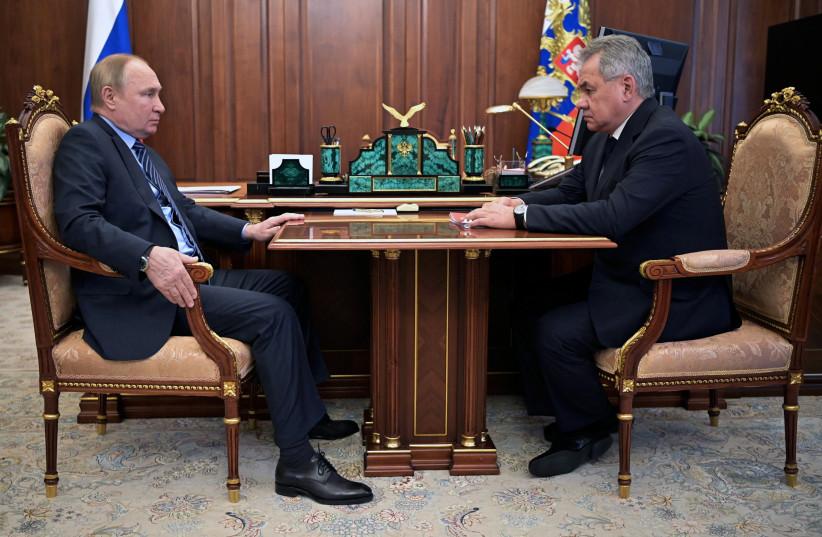Russian President Vladimir Putin gave the green light on Friday for up to 16,000 volunteers from the Middle East to be deployed alongside Russian-backed rebels to fight in Ukraine, doubling down an invasion that the West says has been losing momentum.
The move, just over two weeks since Putin ordered the invasion, allows Russia to deploy battle-hardened mercenaries from conflicts such as Syria without risking additional Russian military casualties.
At a meeting of Russia's Security Council, Defense Minister Sergei Shoigu said there were 16,000 volunteers in the Middle East who were ready to come to fight with Russian-backed forces in the breakaway Donbas region of eastern Ukraine.
"We know many of [these volunteers], they helped in the fight against ISIS during the last 10 years," Shoigu said, according to TASS.
"If you see that there are these people who want of their own accord, not for money, to come to help the people living in Donbas, then we need to give them what they want and help them get to the conflict zone," Putin said.

Shoigu also proposed that Western-made Javelin and Stinger missiles that were captured by the Russian army in Ukraine should be handed over to Donbas forces.
"As to the delivery of arms, especially Western-made ones which have fallen into the hands of the Russian army - of course, I support the possibility of giving these to the military units of the Luhansk and Donetsk people's republics," Putin said.
"Please do this," he told Shoigu.
Russia invaded Ukraine on Feb. 24 soon after Putin recognized the breakaway territories as independent states, in an action condemned internationally as illegal.
Russia says its "special military operation" in Ukraine was a forced response to what it calls genocide by Ukraine against Russian speakers in the east of the country - a pretext rejected by Kyiv and the West as baseless war propaganda.
Shoigu said the Russian military planned to strengthen its Western border after what he said was an increase in Western military units on Russia's border.
Ukraine has accepted thousands of foreign volunteers to aid in its fight against Russia. They have all been incorporated in the International Legion, with some even being eligible for a spot in a foreign volunteer special forces unit, and all of them are eligible for Ukrainian citizenship.
It is unclear what benefits foreign volunteers to Russia would be entitled to, if any.
In response to Putin's remarks, Ukrainian President Volodymyr Zelensky said Russia was deploying Syrian mercenaries.
Germans come home
Most of the extremists who left Germany to help Ukraine fight against Russia have returned, a German Interior Ministry spokesperson said on Friday.
The spokesperson reiterated an earlier statement that the number of extremists in Ukraine was in the single digits.
Germany has been able to prevent further extremists from leaving to fight in Ukraine and Russia, added the spokesperson during a regular news conference, without giving a number.
In Germany, the number of anti-Russian and anti-Ukrainian incidents has been low and the ministry is monitoring the situation, added the spokesperson.
This is a developing story.
